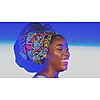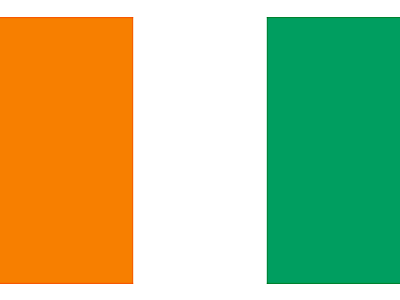How Much Ivory Is in the Ivory Coast?
Posted by khethiwe qotyana on 03 April 2018, 11:35 SAST

Months of armed conflict in the Ivory Coast may soon come to a close, as president Laurent Gbagbo, who refused to relinquish power after losing last fall's presidential election, finally began negotiating with opposition forces surrounding his home. If everything goes well, the country's main exports— petroleum, cocoa, and coffee —will fund its recovery. What about ivory? Does the Ivory Coast still live up to its name?
Not so much. There are only two or three hundred elephants (PDF) living in isolated herds in the country. There were at least 10 times that many in 1980, but habitat destruction and the wave of poaching that decimated elephant populations across Africa in the ensuing decade pushed them to the brink of extinction. The disappearing pachyderm is more of a moral and ecological problem than an economic one, though. Elephant hunting hasn't accounted for more than a small fraction of the country's economy in a century, and the 1989 ban on the international ivory trade didn't have a noticeable impact on GDP.
Even so, the Ivory Coast continued to serve as a major hub for the illegal ivory trade until political instability undermined the market just a few years ago. There may not be so many elephants left in the country, and the market for ivory has been greatly diminished, but there are still plenty of contraband chopsticks, signature seals, and necklaces for sale. Tourists (especially from Asia) buy ivory trinkets carved by Ivoirian artisans, who have a reputation for being among the best at their trade. No one knows exactly where the artisans are getting their ivory. It may come from Tanzania and Zambia, the source of massive shipments handled by international crime syndicates. Or it might be that the Ivoirians are importing ivory from small-time poachers scattered all over the continent.
There's a reason the French called the region the Côte d'Ivoire when they set up shop in the region. There was no elephant census in the 1600s, but modern researchers estimate that the country hosted hundreds of thousands of pachyderms when Europeans began establishing settlements in West Africa. Explorers named different parts of the region after the product they found most abundant: What we now know as Sierra Leone and Liberia was called the "pepper coast". Present-day Ghana was the "gold coast." When the slave trade grew, areas to the east were known as the "slave coast."
While Europeans associated the Ivory Coast with elephants from the beginning, it took some time for adventurers to settle on the modern name. Maps from the 16th and 17th centuries sometimes refer to it as the côte des dents (the teeth coast, in reference to elephant tusks) or the more anatomically specific côte des défenses (the tusk coast). For all its tusks, it's not clear whether West Africa really had the richest concentration of elephants on the continent. The animals were abundant in East Africa as well, and Great Zimbabwe—an economic hub long before European colonization—was a major ivory market.
The collapse of elephant populations in West Africa came slowly, then all at once. Between 1900 and 1910, the price of ivory more than quadrupled (PDF), leading to massive overhunting. West African ivory ran dry at the end of that decade, forcing traders to look elsewhere on the continent. While elephant populations rebounded in much of Africa during the Great War, when demand for ivory tanked, West African herds were too damaged to recover. Hunters decimated the elephants that remained in Ivoirian forests in the 1960s, and the population has been steadily dwindling since then.
